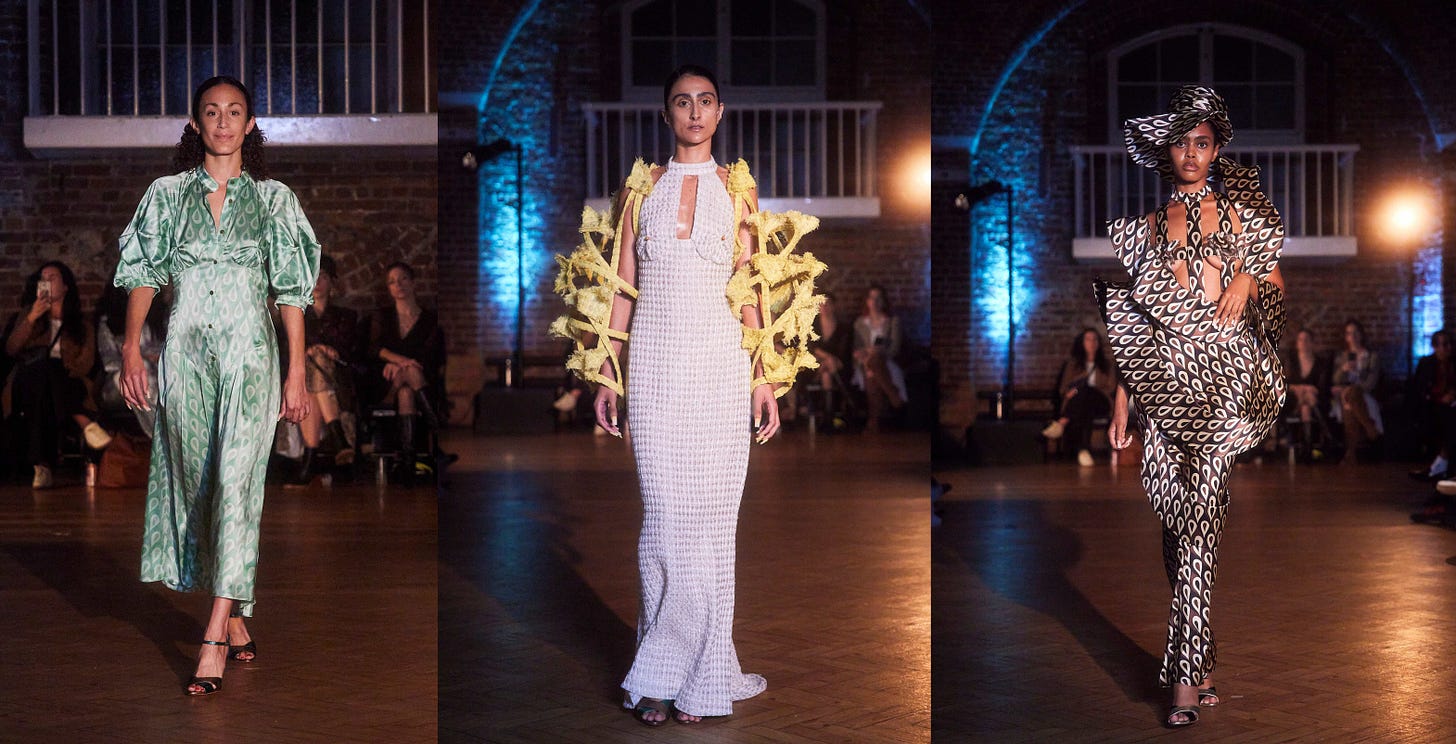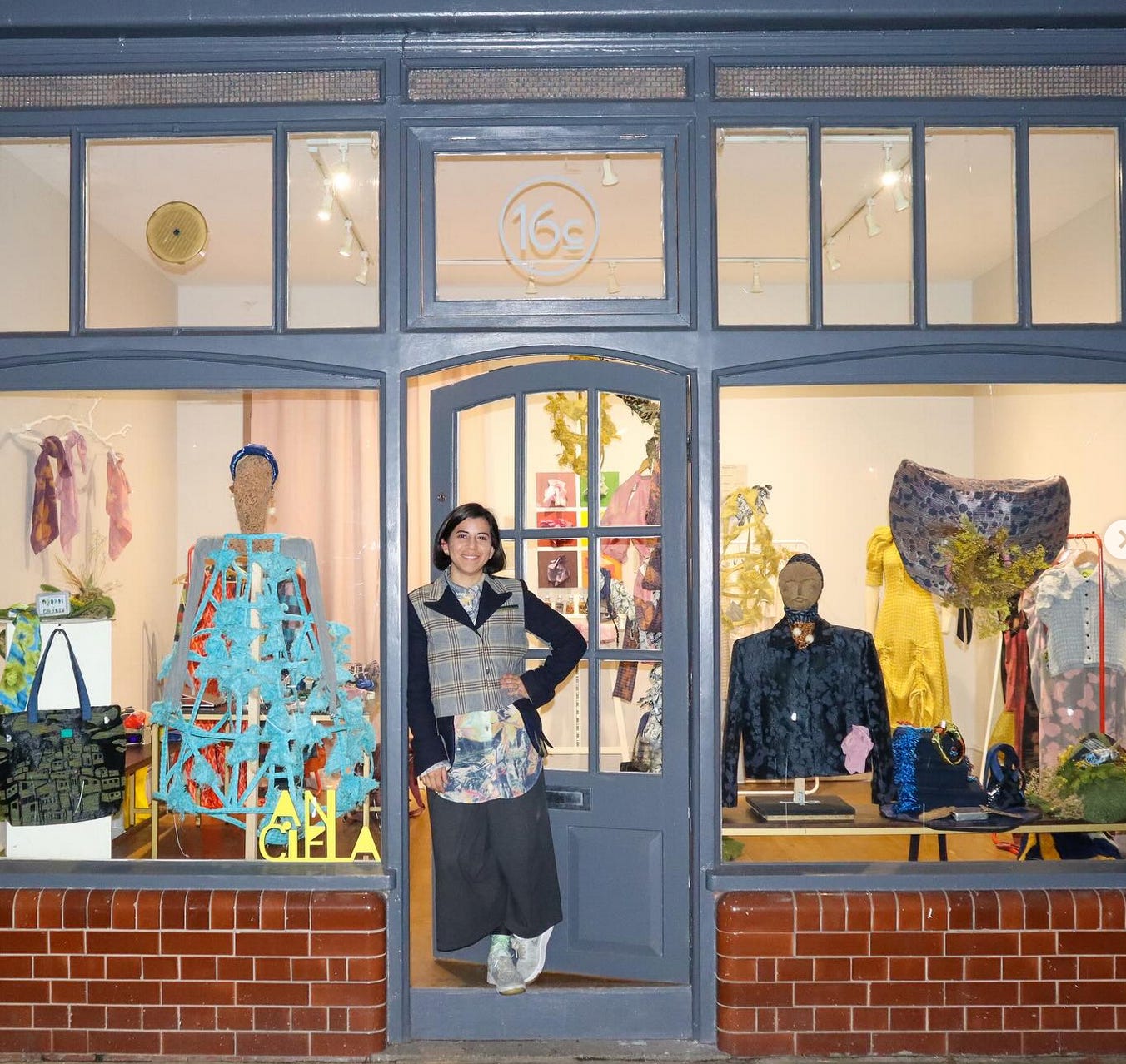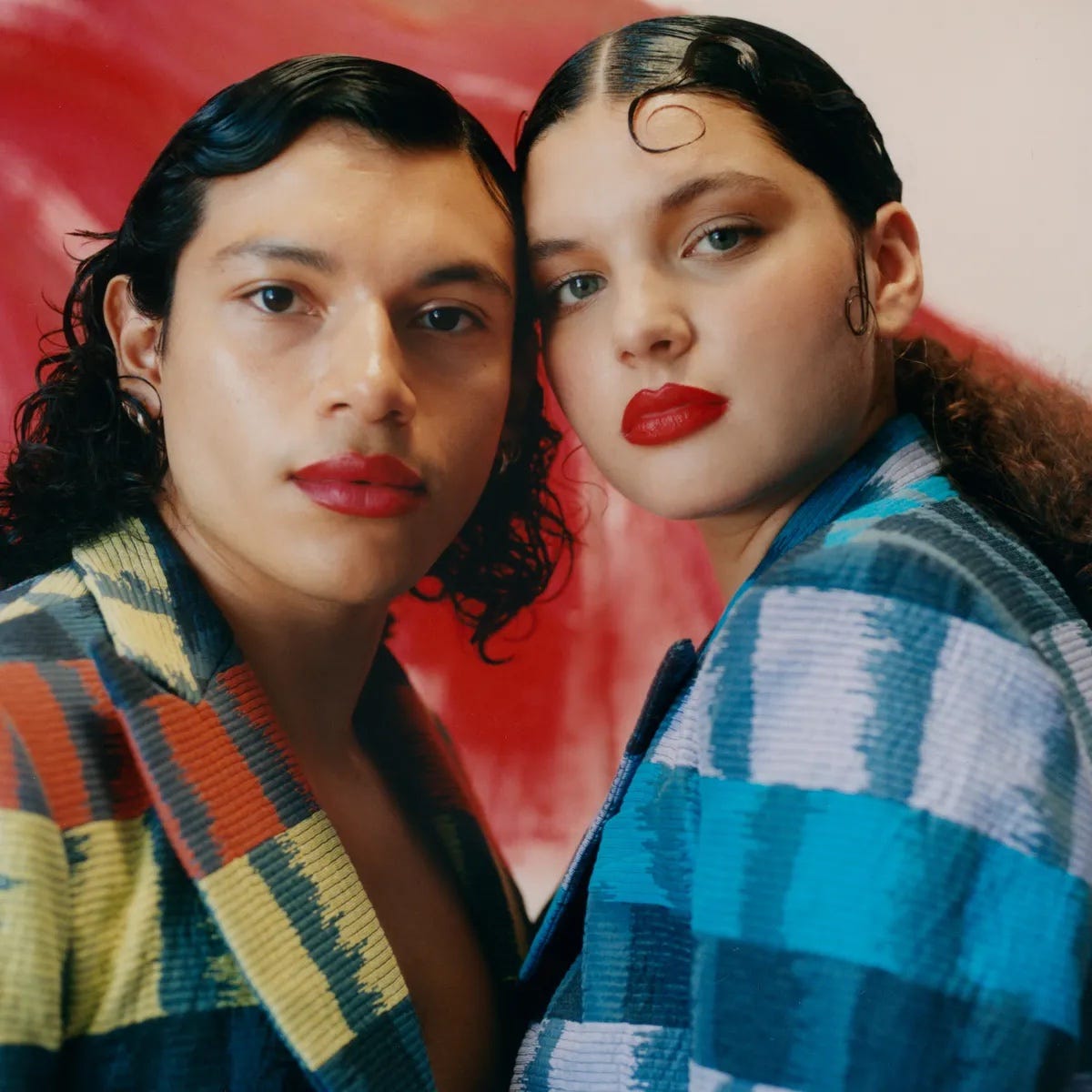Jennifer Droguett's Anciela Is a Stand Against Cultural Appropriation
By weaving stories into every piece of her collection, the Chilean-Colombian designer strives to give Latin Americans the visibility they deserve.
Meeting Jennifer Droguett Espinosa, the designer behind Anciela, gives you that sensation of immediate familiarity, as though you are reconnecting with an old friend. Sporting a sharp bob and tailored shirt with a lively print, I couldn't help but compliment her.
She explained the print was a collage of 1920s Colombian newspapers depicting banana plantation photographs mixed with butterflies sketched with pastels. It was reminiscent of the banana massacre—a theme also present in Gabriel García Márquez's renowned novel, "One Hundred Years of Solitude". "Because I came up with it during the pandemic, it alluded to how we continue to make the same mistakes generation after generation," she says.
This insight captures the essence of Anciela's allure; Droguett's Chilean-Colombian heritage not only shapes the broad themes of her collections but is also intricately woven into every detail, enriching the narrative and depth of her designs.

For London Fashion Week Droguett set up a pop-up shop in Shoreditch to mark the brand's fifth anniversary. The venue reflected the brand's intimate ethos and showcased "Latin Notes", her Spring Summer 2024 collection, first unveiled in September, alongside a selection of previous work.
The collection's vibrant prints are derived from deadstock fabrics, thoughtfully facilitated by Allegra Hicks to blend style with environmental consciousness, a cornerstone of the Anciela brand. She also collaborated with Alice Timmis Studio to create experimental jacquards, incorporating raffia, recycled yarns, and Tencel jerseys. Additionally, Droguett teamed up with Mariana Leyva from Studio Kuhu to bring traditional Mexican dyes like English Madder and the historic Cochineal dye to the collection.
Curious about her motivations for establishing a brand, I couldn't help but ask. She sighs, 'It's so difficult, you know? Why bother, right?' However, after graduating from the Amsterdam Fashion Institute and working in various studios as a pattern cutter and assistant, she noticed something that made her uncomfortable.
"Ten years ago, cultural appropriation wasn't a topic that was discussed much," she recalls an experience where she saw all-white teams trying to reference a particular design that was trending. "They weren't interested in the story behind it. It looked nice, so they copied it and made it more commercial; this bothered me."
For this reason, it was essential for Droguett to establish a brand that sought sustainability, cultural respect, and diversity. "But I didn't have a fashion degree from a famous school, the finances, or the connections," she recalls. With a limited network of only her design team and a few London workshops— she felt constrained. Still, she decided not to overthink it and asked herself, "What can be done?"
She came up with the name "Anciela" by blending the names of her grandparents, Angel and Graciela, as a constant reminder of her roots and Latin American heritage.
Starting a brand is already a challenging task for any designer, but for a Latin American like her, it can be even more difficult; not only are "you rendered invisible," but she wanted to steer clear of the clichéd expectations placed upon Latin designers and the overexploited theme of artisanal craftsmanship to forge an authentic connection that resonated with her narrative.
She came up with the name "Anciela" by blending the names of her grandparents, Angel and Graciela, as a constant reminder of her roots and Latin American heritage.
Starting a brand is already a challenging task for any designer, but for a Latin American like her, it can be even more difficult; not only are "you rendered invisible," but she wanted to steer clear of the clichéd expectations placed upon Latin designers and the overexploited theme of artisanal craftsmanship to forge an authentic connection that resonated with her narrative.
While working in various workshops around Tottenham, finding solace in the arepas of the now-vanished Latin Village. While there, she couldn't help but notice the diverse and vibrant Latin American diaspora. "How beautiful, but sad that we're not even recognised as an official minority," she thought.
From a sustainability standpoint, Droguett acknowledges that we don't need more clothes. However, shedding light on untold stories is invaluable. "We all felt invisible. Why must something be considered cool only if someone [external] approves and promotes it? Why can't it be us?"










